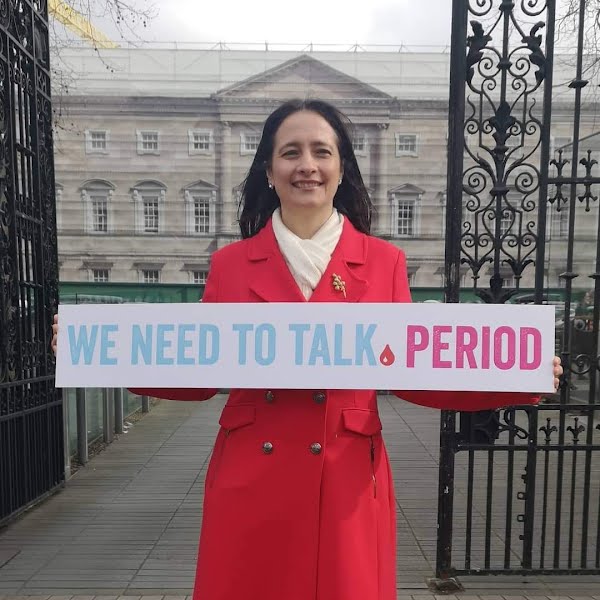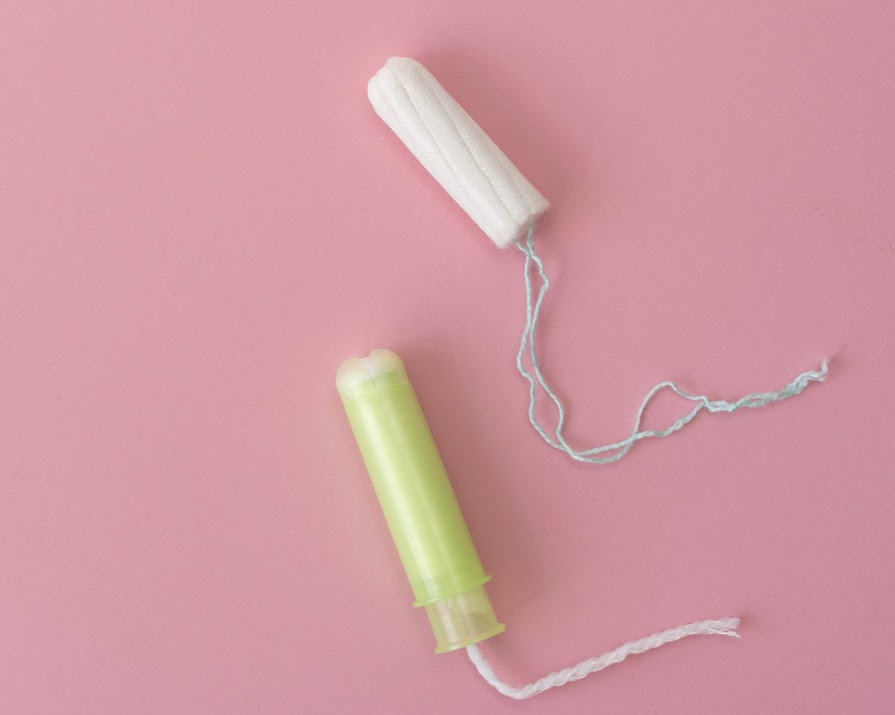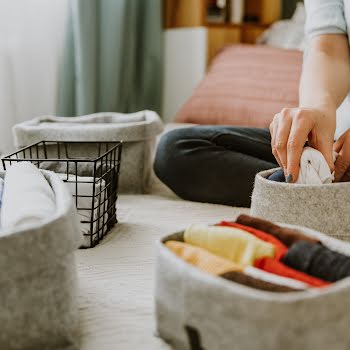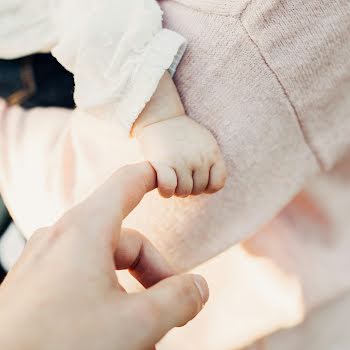
#EndPeriodPoverty: ‘The shame and stigma around periods has to end’
By Jennifer McShane
28th Jan 2021
28th Jan 2021
Following the news that the Period Products (Free Provisions) Bill past its first stage in the Seanad, we thought there was no better time to re-share our interview with founder of the Oireachtas Women’s Parliamentary Caucus, Deputy TD Catherine Martin and her views on Ireland’s campaign to #EndPeriodPoverty.
In early 2019, for the first time in history, a cross-party group of female members of the Dáil united to bring forward a motion on period poverty. It included a call for the provision of free sanitary products in all public buildings in efforts to end period poverty in Ireland as well as improving education on periods and working to de-stigmatise the subject.
The average woman, or anyone who experiences periods, will have 507 periods from age 12 to 51, for roughly 39 years of her life, and Martin explains many don’t realise exactly how much we need to spend on sanitary products alone. She breaks down the cost and roughly estimates that a woman will spend just €8,000.
“In Ireland, sanitary products can cost from €2 to €6 per pack (with the average pack containing 10 to 15 pads or tampons), a 12 pack of pain relief tablets costs between €6 and €10. As most women and girls will have 13 periods a year, with some using up to 22 tampons and/or towels per cycle, this will lead to an estimated annual cost of €208 for sanitary products and pain relief, costing €8,100 over a lifetime.”

Period poverty
Period poverty refers to the situation a woman finds herself in when she is so financially strained that she cannot afford basic sanitary products during her menstruation. Such a demoralising thought may sound unbelievable, but the fact is, this is a reality many women can face each month. Homeless women suffer the most but it can affect anyone – your friend, your neighbour, even a family member.
“Period poverty is very real for women in our country. It’s staggering. Many don’t know what period poverty is and even when people do know what it is, they don’t think it’s an issue in Ireland,” she explained.
Recent figures from a survey carried out by Plan International show that nearly 50% of teenage girls across Ireland continuously struggle to afford sanitary products month-on-month. It also tellingly revealed the shame and stigma which still exists; nearly 60%, or one in two, of young women and girls, said school does not inform them adequately about periods, six out of ten young women reported feeling shame and embarrassment about their period, and more than 80 per cent said they did not feel comfortable talking about their periods with their father or a teacher.
Thanks to @PlanIreland for their work highlighting the issue of #PeriodPoverty. They surveyed more than 1,100 young girls and women aged between 12 and 19 years.
“It’s because we’re not talking about it – we need to be speaking about it more openly. If you look back at Dáil records alone, the word ‘menstruation’ was only used 27 times in 100 years and usually in the context of fertility and rarely in the context of health and wellbeing. And it has a knock-on effect; people aren’t going to doctors about symptoms of endometriosis, for example, because there’s no conversation about what’s heavy what’s not and so on.”
I could sense that, even when I was talking about it to some women, that there was a sense of uncomfortableness; this hush or taboo feeling and I'd think, how? How are we still so uncomfortable with this most natural of states for a woman? It's the same as pregnancy.
When we originally spoke of this, Martin said what was needed next is, happily, what the Period Products (Free Provisions) Bill will provide: a range of free, adequate, safe and suitable sanitary products and comprehensive, objective menstrual education information distributed through all public buildings, including schools, universities, direct provision centres, refuges, homeless services and other public buildings.
This includes Martin said, putting easily accessible information in the public domain.
“Ideally, we want a state-run website with objective information, to ensure girls, boys and people of other genders have access to education about menstruation integrated into the school curriculum, to ensure improved access to hygienic facilities and sanitary products that are affordable and meet individual needs. We also want to work with other countries across the European Union to remove VAT on all sanitary products, including healthy and environmentally-friendly sanitary products such as cups and period-proof underwear.”
Fianna Fáil senator Lorraine Clifford-Lee, who brought the Period Products (Free Provisions) Bill into the Seanad, had this to say about the crucial effect it would have:























